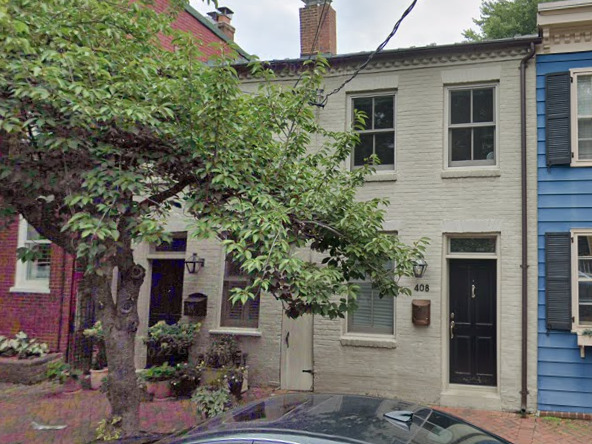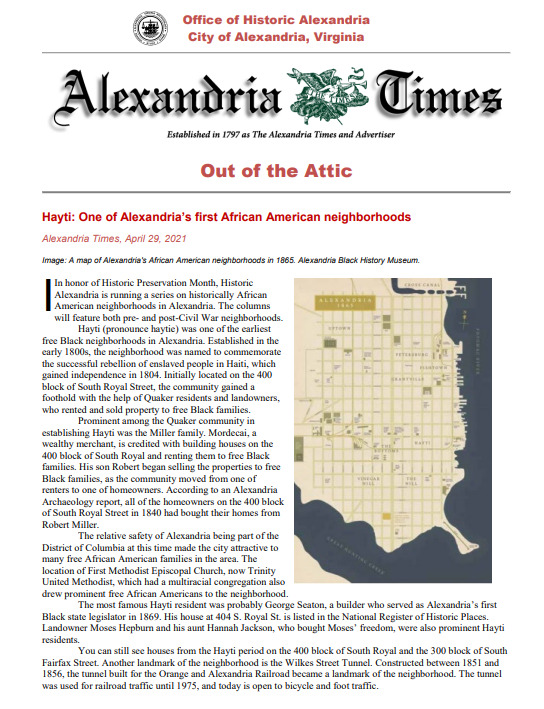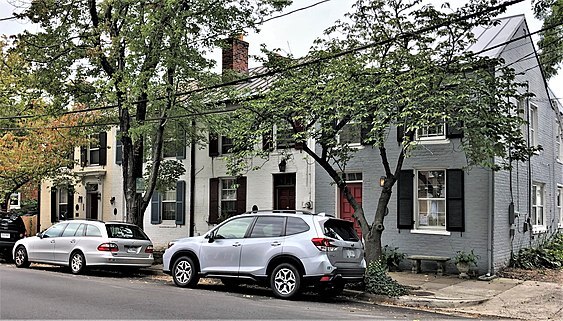Hannah Jackson and Her Legacy
Hannah Jackson was a formerly enslaved woman. She purchased a house from Mordecai Miller for 5 shillings at the location that is now 406-408 South Royal Street in 1820. [1] There are not many documents about her but, there are several wills transferring property to Hannah Jackson and her relatives. Jackson was a well-known citizen of Hayti.[2] There are court documents stating her freedom and the freedom of her family.
To be a woman buying property at this time is astounding, to be a black woman even more so. She filled her home and neighborhood with newly freed individuals. Hannah created a life of blessing, freedom and good citizenship for many people.
Hannah Jackson was a remarkable woman. She was a washerwoman by trade. Her freedom was bought and by 1816 she had purchased many other members of her family out of bondage. This was a twisted situation in which she legally became their owner until she freed them. Among these were a sister, daughter, grandchildren, niece, and nephew. Her niece and nephew were the children of their former owner, and he paid for their education and upbringing. [3]
Her nephew, Moses Hepburn, was educated in Philadelphia and became a leader in the business and social world of Alexandria’s African American community. He also became a landowner who rented to Blacks continuing the tradition. Moses bought the land and constructed row houses after Alexandria was retroceded from the District of Columbia to Virginia. Laws of the Commonwealth of Virginia were incredibly restrictive against African Americans, and Hepburn’s ability to operate as a businessman during this period, “illustrates his depth of character and determination as a well as his standing in the community.” [4]
"The Moses Hepburn Rowhouses are a set of four historic rowhouses located at 206 through 212 North Pitt Street in the Old Town area of Alexandria, Virginia. They were built about 1850 by Moses Hepburn Sr., a prominent African American businessman and citizen. These houses were added to the National Register of Historic Places in 2004." [5]
[1] Hannah Jackson: An African American Woman and Freedom: Archival Data Pertaining to 406-408 South Royal Street. Alexandria, Virginia: Alexandria Archaeology, 1991
[2] Revis, Sara. 217 North Royal Street (44AX66) 1790-1910: Archival Profile of Site and Area Adjoining. Alexandria, Virginia: Alexandria Archaeology, 1991.
[3] “To Witness the Past: African American Archaeology in Alexandria, Virginia.” Alexandria, VA: Alexandria, 1993.
[4] National Park Service. National Register of Historic Places- Registration Form. “Moses Hepburn Rowhouses.” Completed by Elizabeth Calvit, Francine Bromberg, and Barbara Ballentine for the Office of Historic Alexandria, August 1994, revised October
[5] “Moses Hepburn Rowhouses,” in Wikipedia, August 12, 2022, https://en.wikipedia.org/w/index.php?title=Moses_Hepburn_Rowhouses&oldid=1104011486.



